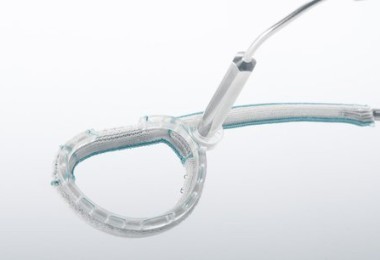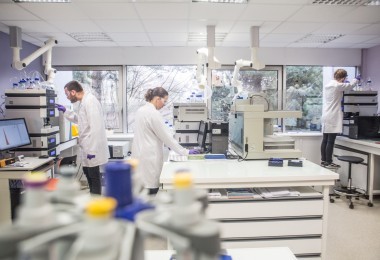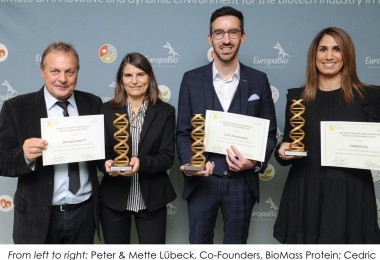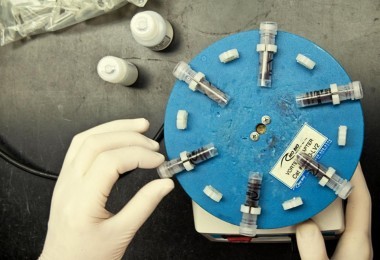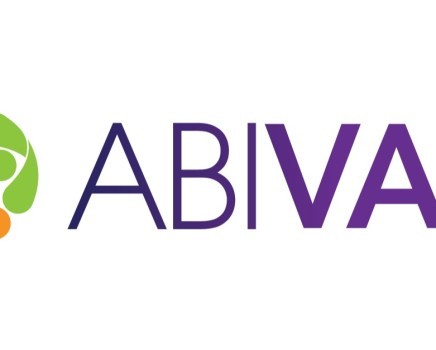
PARIS, France & SAN DIEGO, California, February 26, 2020 – 06:00 p.m. (CET) – Abivax SA (Euronext Paris: FR0012333284 – ABVX), a clinical-stage biotechnology company harnessing the immune system to develop novel treatments for inflammatory diseases, viral diseases and cancer, today announced dosing of the first patient in a U.S. Phase 1/2 clinical trial of ABX196 to treat patients with hepatocellular carcinoma (HCC), the most common form of liver cancer.
In this trial, ABX196, an invariant Natural Killer T cell (iNKT) agonist, is administered together with the checkpoint inhibitor nivolumab (Opdivo®, Bristol Myers Squibb) to evaluate the potential beneficial effects of a combination therapy, with ABX196 boosting the activity of nivolumab in HCC patients.
The study’s objective is to generate initial data about the safety and tolerability of this novel combination treatment as well as data on its preliminary efficacy. Thus far, ABX196, both alone and in combination with a checkpoint inhibitor, showed a statistically highly significant therapeutic effect in reducing tumor growth as measured by MRI and increasing survival in mice with HCC.
Prof. Hartmut J. Ehrlich M.D., CEO of Abivax, said: “The treatment of the first patient with ABX196 is an important step for Abivax and further reinforces the significant potential of our pipeline. With ABX464 in the field of inflammatory diseases and ABX196 in oncology, Abivax is now testing two very promising drug candidates in different major disease areas with high unmet medical need. Together with our partners, we are very much looking forward to exploring the impact of this iNKT agonist in a combination treatment with nivolumab in order to learn more about ABX196’s capacity to broaden and potentiate the efficacy of checkpoint inhibitors.”
The study is conducted at two renowned cancer centers of excellence, the Scripps MD Anderson Cancer Center in San Diego, CA, and the MD Anderson Cancer Center in Houston, TX. Abivax plans to involve additional leading cancer centers in the U.S. in the subsequent expansion phase of the study.
Darren Sigal, M.D., Program Director of GI Oncology at Scripps MD Anderson Cancer Center in San Diego, physician with Scripps Clinic and principal investigator of the study said: “Despite the recent advances in treating hepatocellular carcinoma, most patients will still not respond to checkpoint inhibitor therapy and ultimately die of their disease. ABX196 is the first non-checkpoint inhibitor immune therapy to be evaluated in HCC; it activates the iNKT cell, a key anti-cancer immune cell. We are excited to investigate the potential clinical benefits of combining ABX196 with nivolumab in this Phase 1/2 trial.”
ABX196 is Abivax’s second promising drug candidate progressing through clinical development. It follows ABX464, which is being developed in a Phase 2b trial in ulcerative colitis and a Phase 2a trial in rheumatoid arthritis. A Phase 2b study is also planned in Crohn’s disease for ABX464.
ABX196 is a synthetic glycolipid agonist of invariant Natural Killer T cells (iNKT) in a liposomal formulation. A Phase 1 clinical trial conducted by Abivax in healthy volunteers has been completed and demonstrated safety and tolerability as well as a potent activation of iNKT cells. Preclinical studies have demonstrated the potential of ABX196 for cancer therapy: ABX196, both alone and in combination with a checkpoint inhibitor, showed a statistically highly significant therapeutic effect in reducing tumor growth as measured by MRI and increasing survival in mice with HCC. Abivax holds exclusive rights to ABX196 from Scripps Research, the University of Chicago, and Brigham Young University.
Checkpoint inhibitors like nivolumab are a leading class of therapeutic monoclonal antibodies that block certain endogenous proteins (PD-1/PDL-1) made by immune cells, such as T cells, as well as some cancer cells. These proteins effectively hijack the immune system, causing it to keep immune responses in check and preventing T cells from killing cancer cells. When these proteins are blocked, the “brakes” on the immune system are released and T cells are able to kill cancer cells much more efficiently. In some cancers, treatment with checkpoint inhibitors has been highly efficacious. However, due to the tumor micro-environment in other cancers, such as HCC, checkpoint inhibitors can have difficulties exerting their effects. ABX196 is intended as a drug that will potentiate the efficacy of checkpoint inhibitors by activating iNKT cells to kill tumor cells.
Hepatocellular Carcinoma (HCC) is the most common form (75-90%) of primary liver cancer in adults. It typically occurs in the setting of chronic liver inflammation and/or cirrhosis, and is closely linked to chronic viral infection such as hepatitis B or C, exposure to toxins such as alcohol, and to certain diseases such as non-alcoholic steato-hepatitis (NASH). The incidence of and deaths related to HCC are increasing in the United States and globally due to hepatitis B and C virus infections, as well as NASH. Prevalence data from 2018 show a total of 79,000 cases of HCC in the U.S. and G5 Europe (Germany, France, Italy, Spain and UK), with 67,000 new cases, and a total of 260,000 cases in China with 338,000 new cases. Globally, there were 841,000 new cases of liver cancer (ranks 6th of all reported cancers) and 782,000 fatalities (ranks 4th) in 2018. Currently, the American Cancer Society reports five-year survival rates in the U.S. of 31% for localized HCC, 11% for regional, and 2% for distant or metastatic, indicating a clear unmet medical need for improved therapies for HCC. Pharmaceutical sales in HCC (U.S., G5 Europe and Japan) were USD 616 M in 2018, up 20% from 2017 (USD 513 M).
Scripps Health and MD Anderson Cancer Center teamed up to create Scripps MD Anderson Cancer Center, a clinically integrated cancer care program in San Diego that began delivering patient care in 2018. The partnership brings together the expertise of doctors at Scripps and MD Anderson to offer patient-centered care, using some of the most advanced cancer treatments available today. Through this partnership, Scripps MD Anderson is part of MD Anderson Cancer Network®, a global collaborative network of hospitals and health care systems dedicated to MD Anderson’s mission to end cancer. The collaboration allows Scripps to combine its expertise with MD Anderson’s knowledge and capabilities to further elevate the level of care for patients in San Diego.

